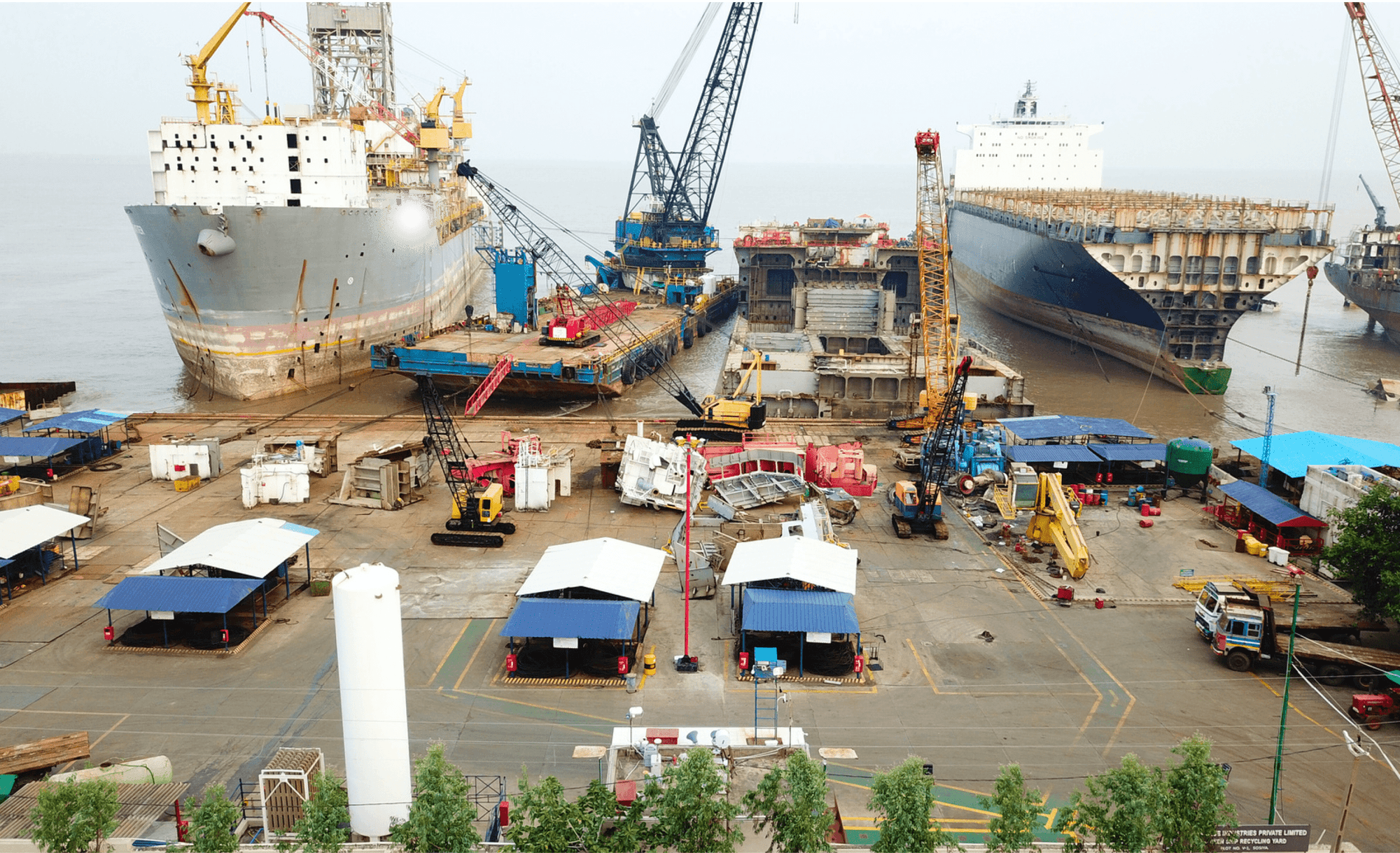EU Nears Approval for Sustainable Ship Recycling in Alang India

In recent times, South Asia has experienced a notable shift towards more environmentally friendly ship recycling practices. Particularly significant is the European Union’s (EU) consideration of expanding its list of approved recycling facilities in Alang, India. Ongoing discussions suggest that this move could be a game-changer in promoting sustainable shipbreaking practices.
The EU is on the brink of reaching an agreement on waste shipments, a development that holds the promise of removing a significant legal obstacle. This breakthrough could open the door for numerous non-OECD (Organisation for Economic Co-operation and Development) ship recycling yards to be included on the EU’s sanctioned list. The expected finalization of this agreement by the end of the year is anticipated to substantially increase shipbreaking capacity. Sea Sentinels, a green recycling consultancy, underscores the critical need for expanded capacity, especially with a massive wave of tonnage expected to be scrapped in the coming years.
ALSO READ : Ship Recycling market has maintained a passive tempo : BEST OASIS
A pivotal aspect of this agreement revolves around hazardous waste, including materials present in EU-flagged ships. The proposed amendment to the EU Waste Shipment Regulation (WSR) aims to allow the export of such waste to non-OECD countries, provided that the receiving facilities adhere to sustainable waste management and disposal practices aligned with EU regulations. Inclusion on an EU-approved list is a prerequisite for these facilities.
Ships reaching the end of their operational lifespan pose significant environmental and health risks due to the presence of hazardous materials like asbestos, ozone-depleting substances (ODS), mercury, and various other pollutants. Operational substances and waste, including oil, fuel, ballast water, and sludge, further contribute to this risk. Proper management and disposal of these materials are crucial to mitigate potential harm to both human health and the environment.
ALSO READ : Dr. Anil Sharma Commends Pakistan’s Pioneering Move to Join the Hong Kong Convention for Safe Ship Recycling
Currently, the EU prohibits the export of such waste in EU-flagged ships under the Basel Convention on transboundary movements of hazardous waste, commonly known as the Basel Ban. This convention is integrated into the WSR. Moreover, the EU Ship Recycling Regulation (EUSRR) imposes stringent standards, mandating all EU-flagged vessels to be recycled at approved yards listed by the EU.
Rakesh Bhargava, Chief Executive of Sea Sentinels, emphasizes the significance of the proposed EU agreement, noting that it represents a substantial legal shift. This shift would enable many yards in non-OECD countries, which have long sought inclusion on the EU list, to finally align with the EUSRR. Bhargava points out that 32 recycling yards in non-OECD countries, including 27 in India and one in Bahrain, have applied for EU approval. Some of these yards have already undergone preliminary audits for compliance with the EUSRR. Additionally, eight yards in Turkey and one in the US are also in the application process.
In a noteworthy development, Pakistan recently acceded to the Hong Kong Convention (HKC) at the International Maritime Organization (IMO) Assembly. This move positions Pakistan as a party to the recycling treaty, demonstrating a commitment to advancing responsible shipbreaking practices. Clarksons Research, in its latest weekly report, observes that recyclers at Gadani, Pakistan, appear prepared to enhance their facilities and practices to meet the HKC’s standards before the treaty enters into force. The HKC’s entry into force requirement was fulfilled following the ratification by Bangladesh and Liberia earlier in the year. The convention is slated to enter into force in June 2025.
ALSO READ : Ship Breaking : FIA Cracks Down on Corruption and Illegal Currency Exchange
According to industry body BIMCO, the next decade could witness the recycling of more than 15,000 ships, double the volume of the previous 10 years. This estimation underscores the growing importance of sustainable shipbreaking practices and the need for expanding the network of approved recycling facilities to accommodate the anticipated surge in tonnage.
In conclusion, the emerging trends in ship recycling across South Asia, particularly the potential expansion of approved facilities in Alang, India, and the positive developments in EU agreements and international treaties, signal a shift towards greener and more sustainable practices in the shipbreaking industry. As the world prepares to tackle the challenges of recycling a massive wave of ships in the coming years, these developments offer hope for a more environmentally responsible and socially conscious approach to ship dismantling and recycling.
Author: shipping inbox
shipping and maritime related web portal









